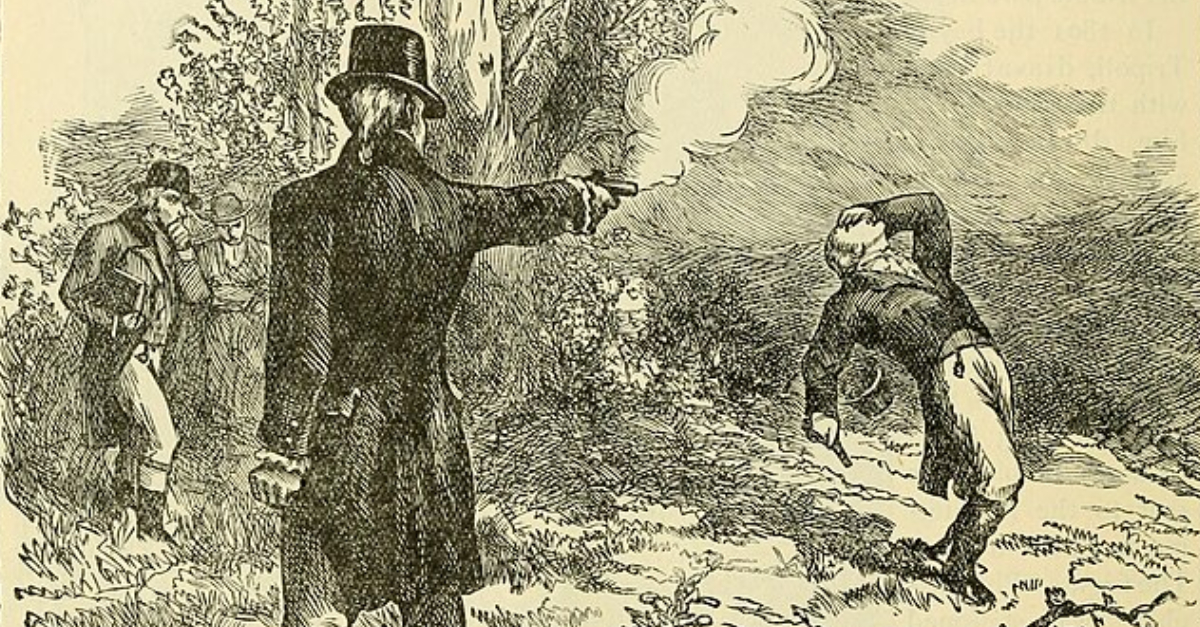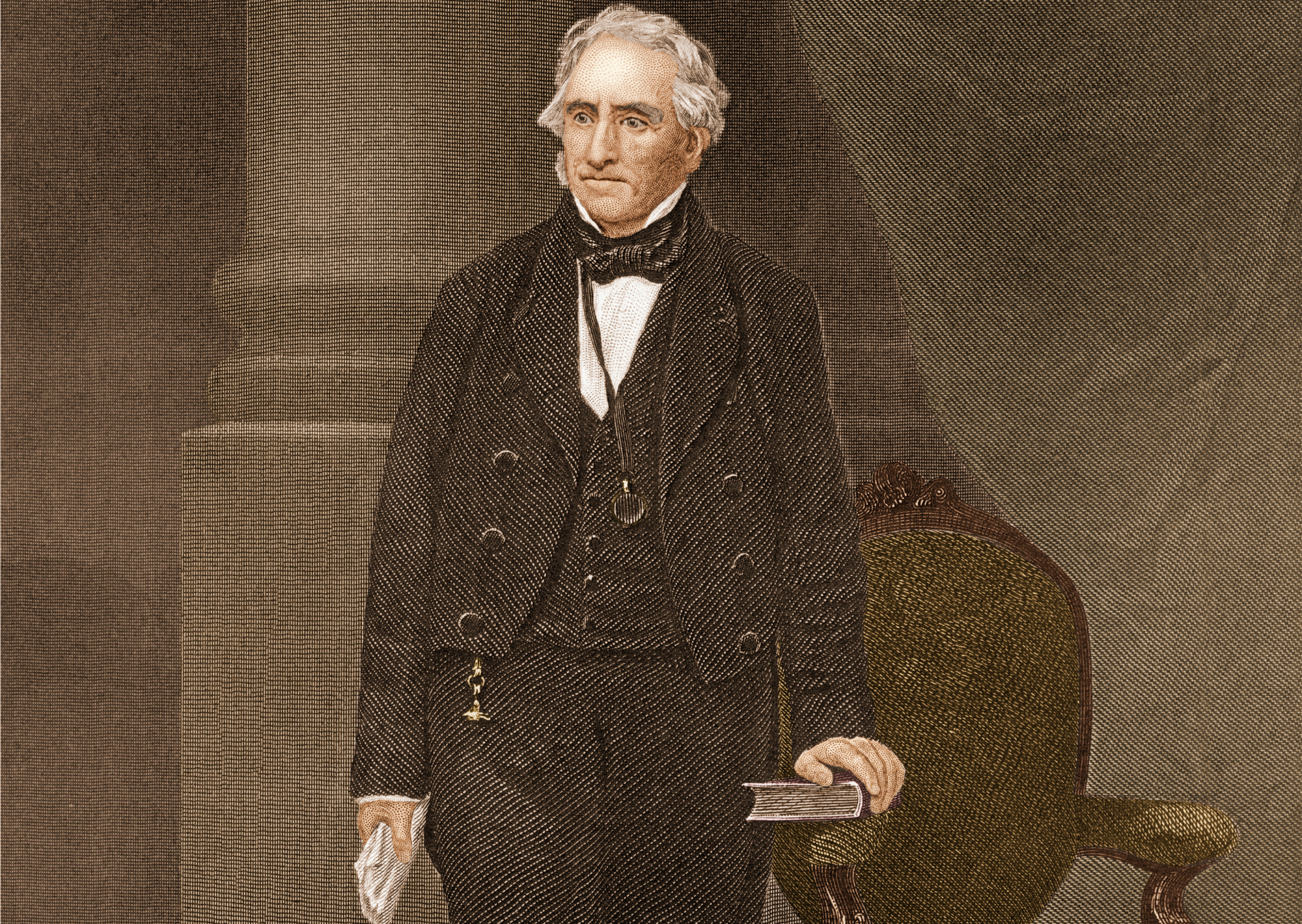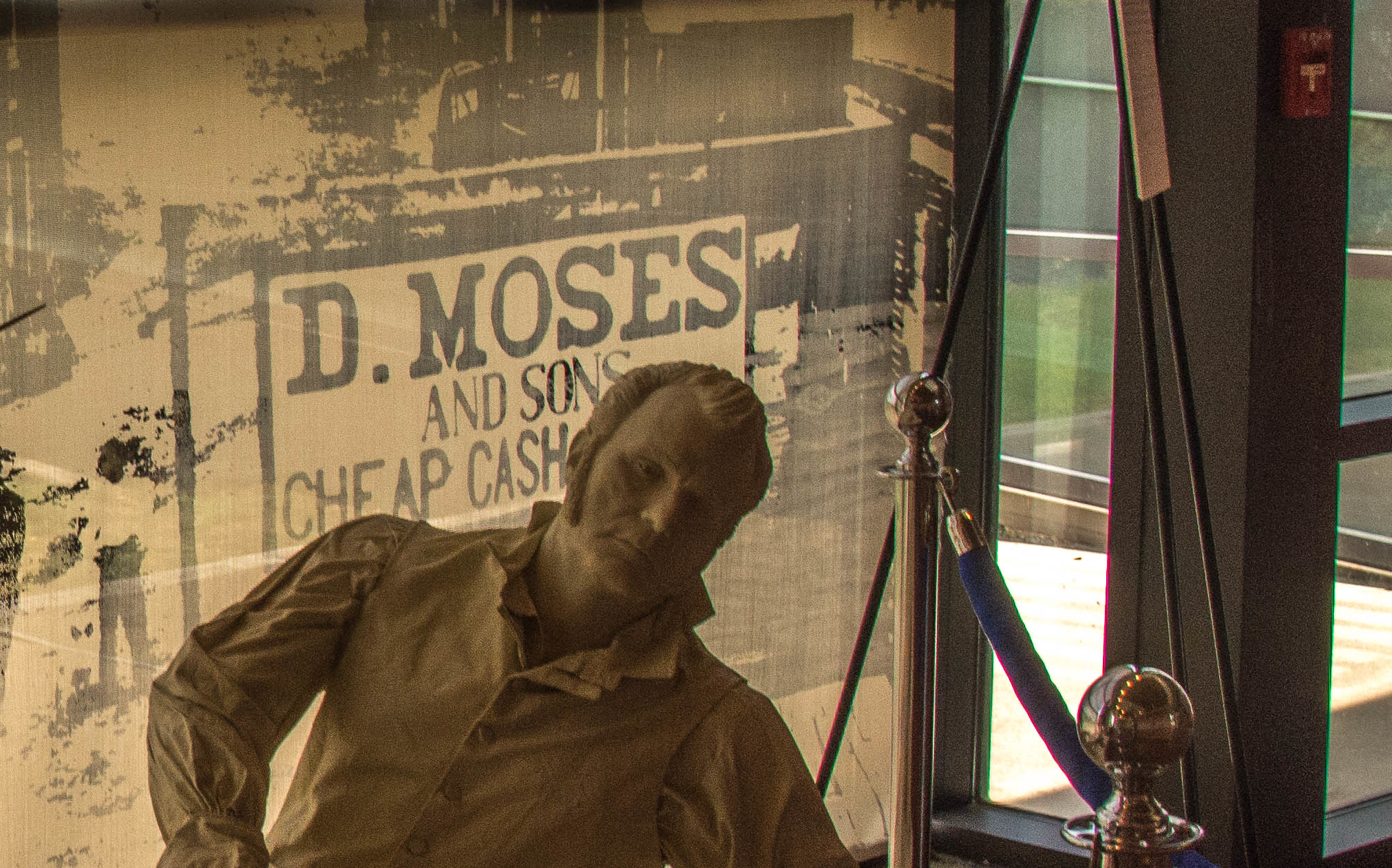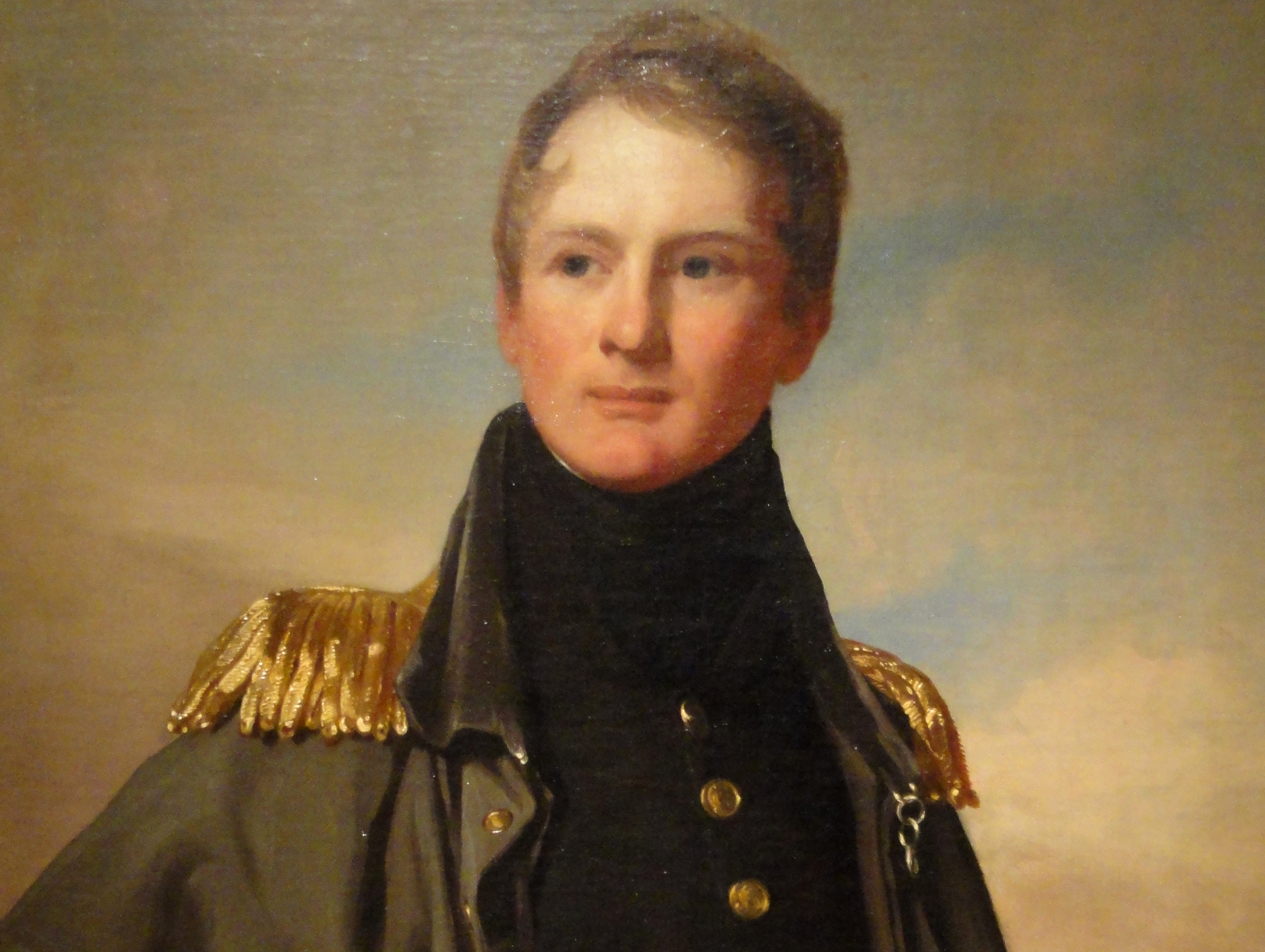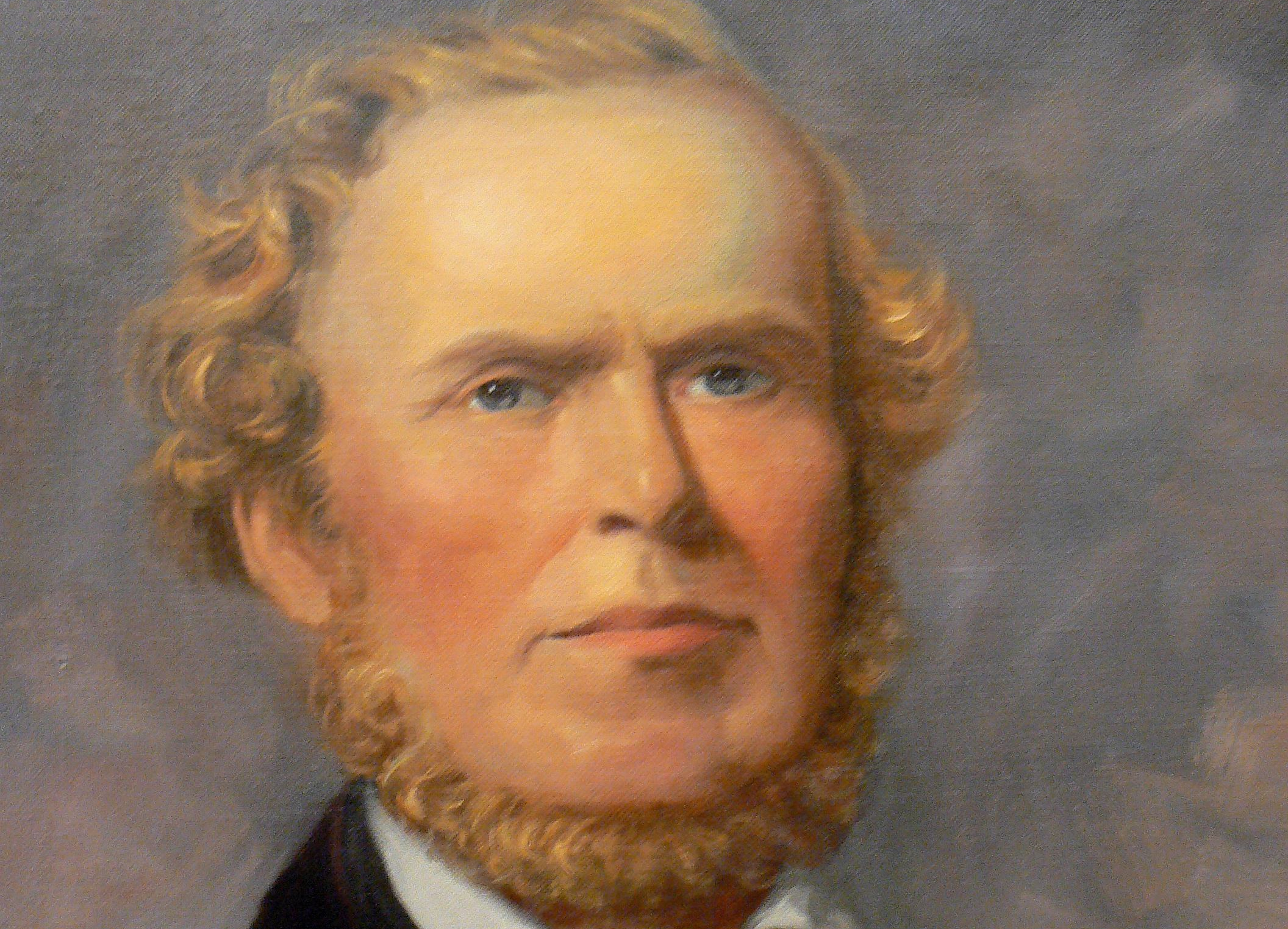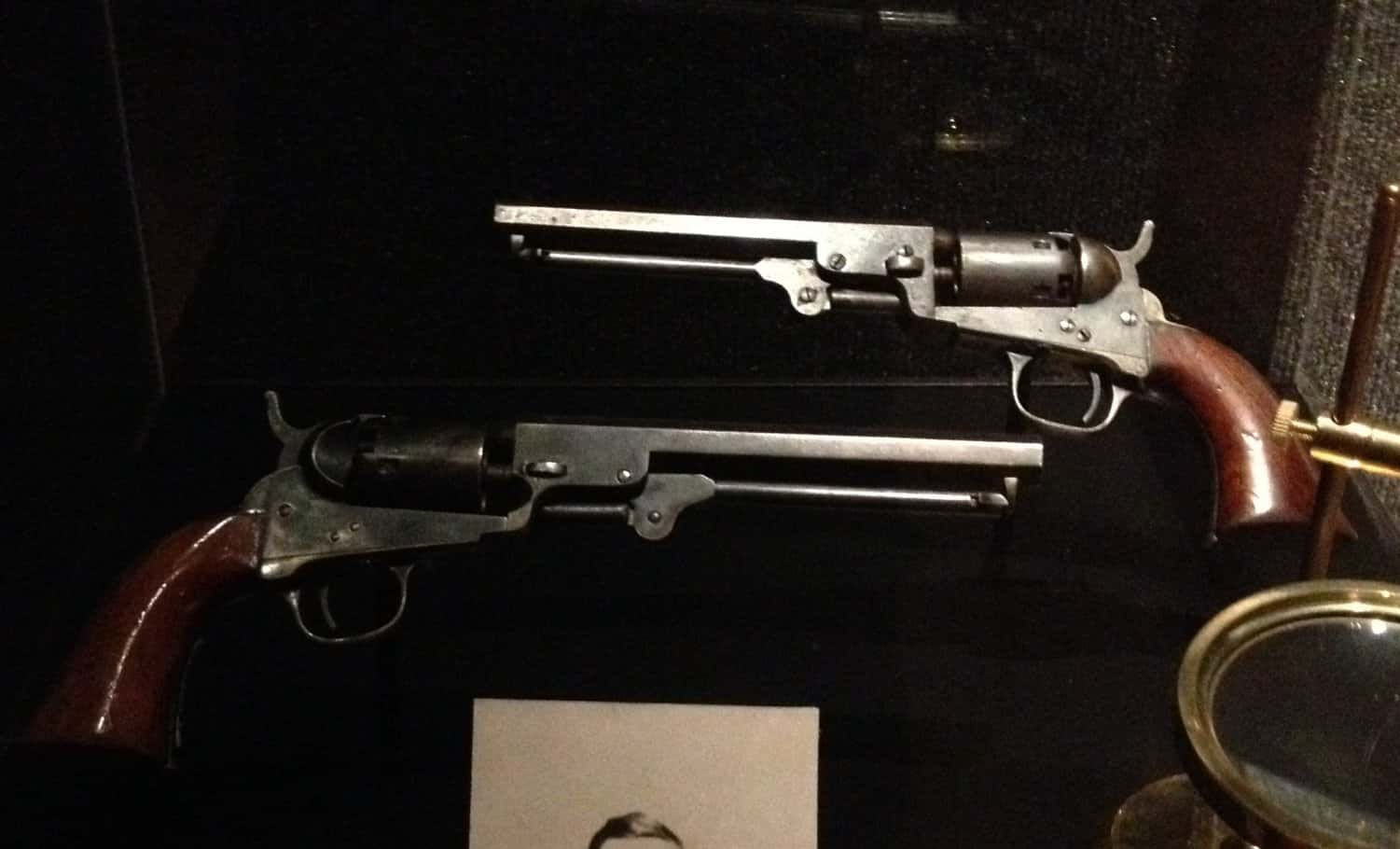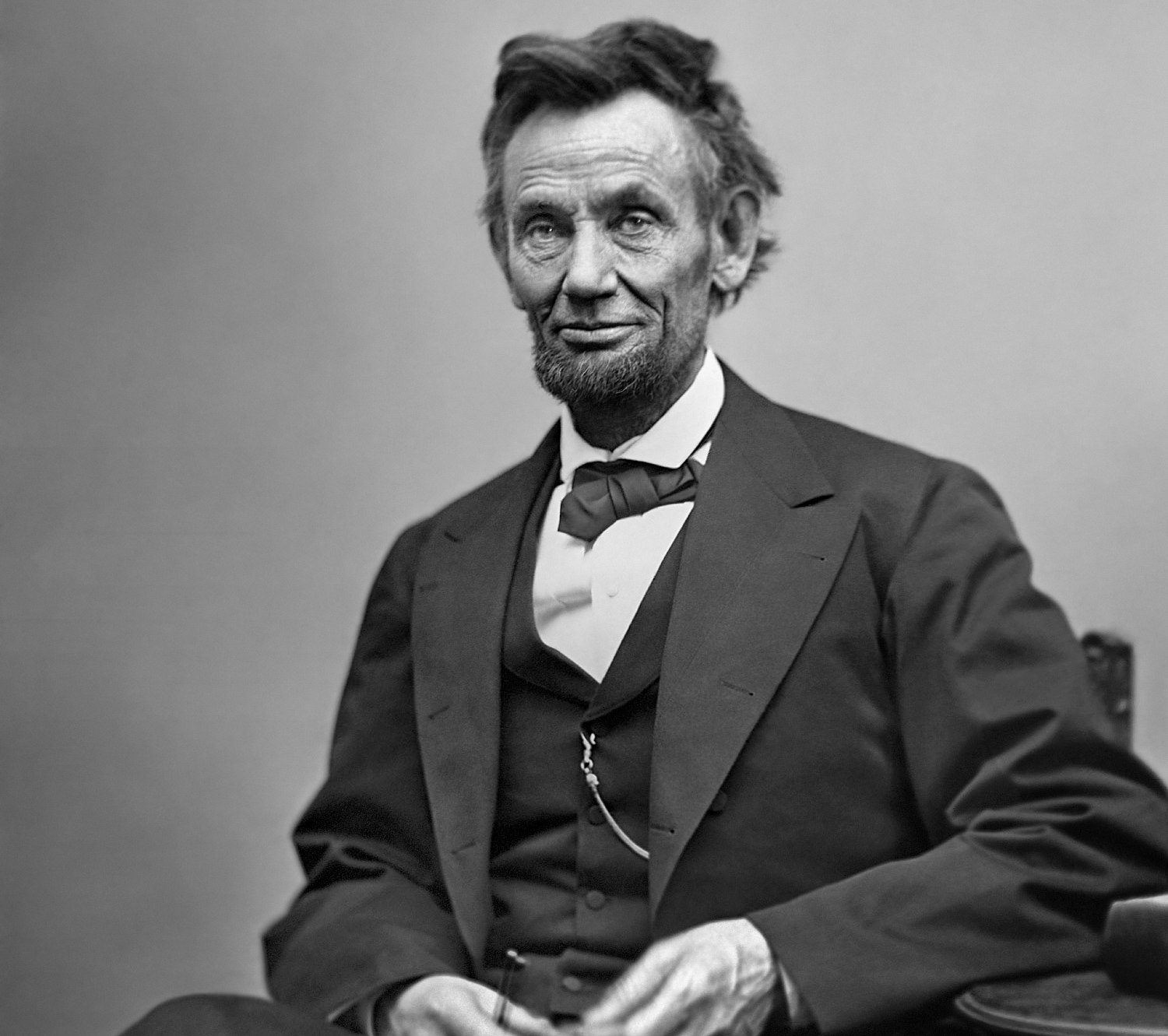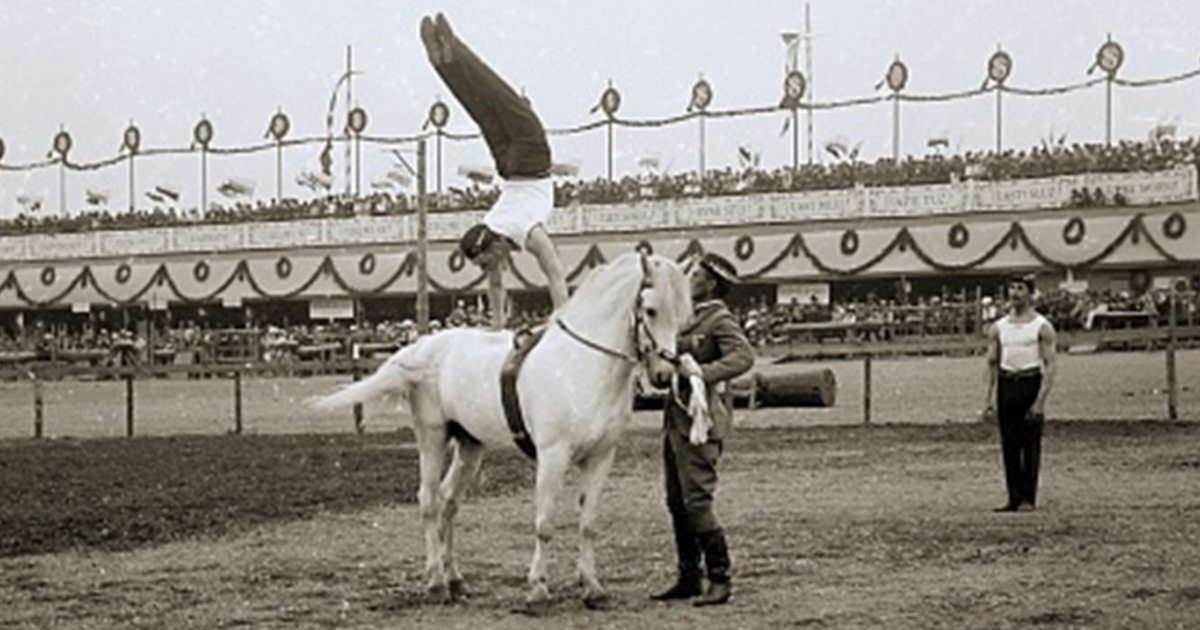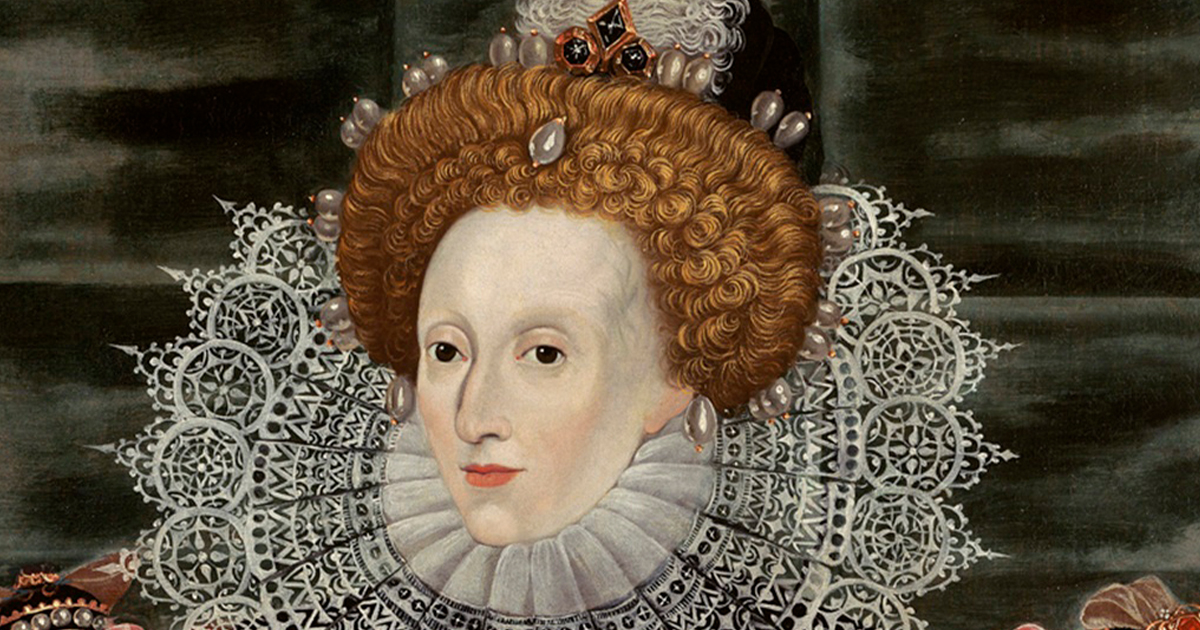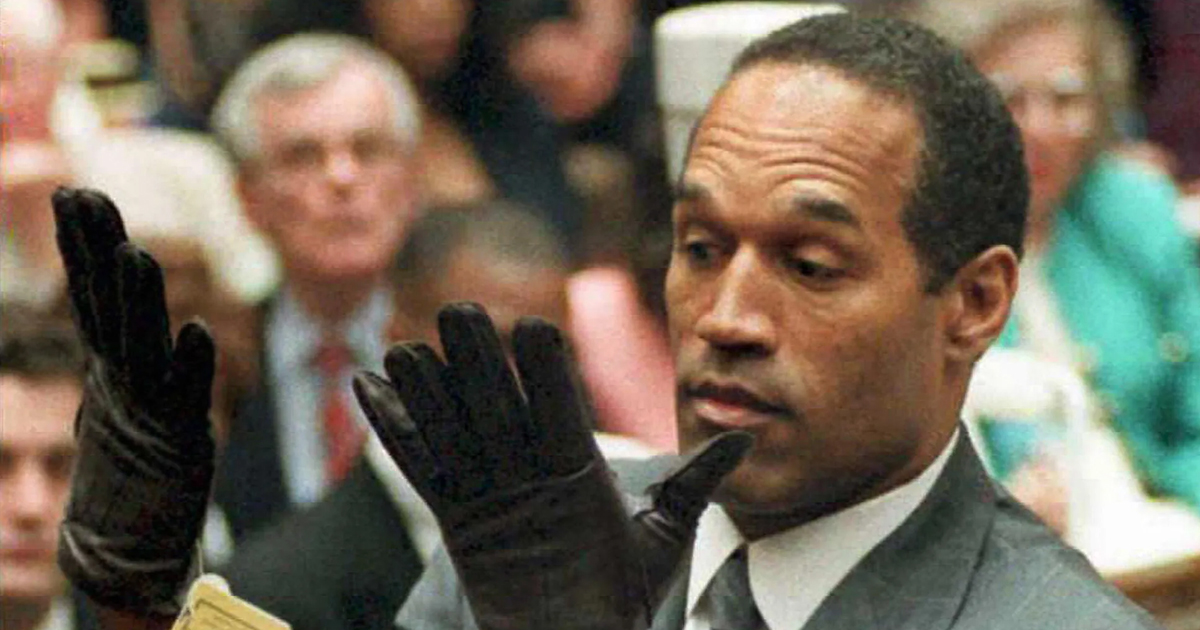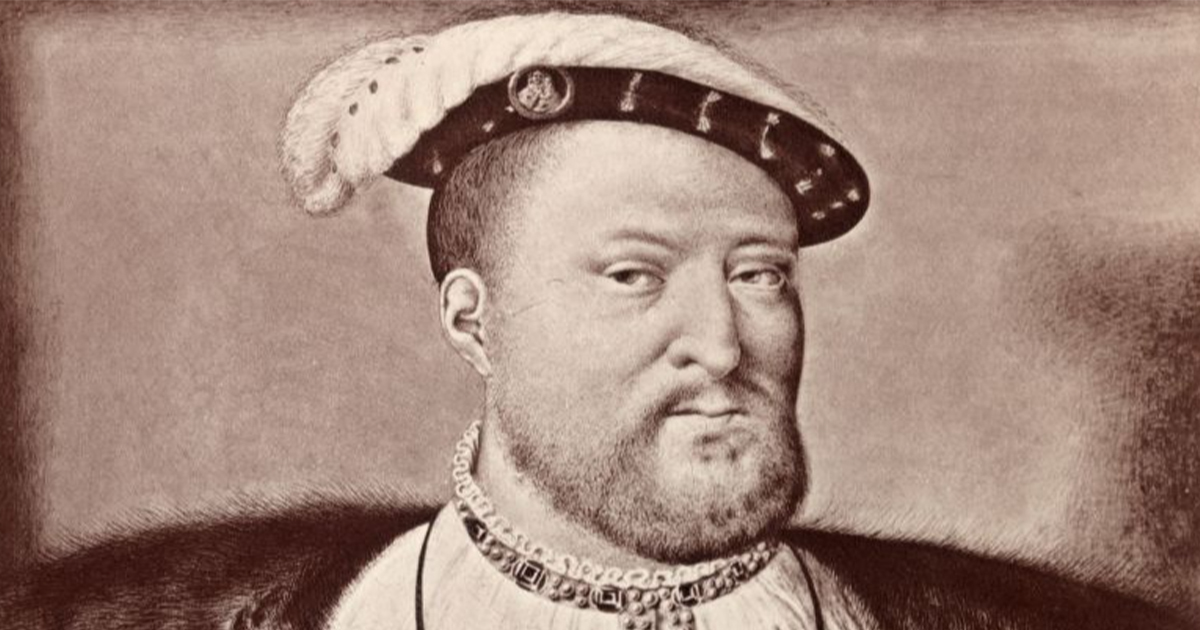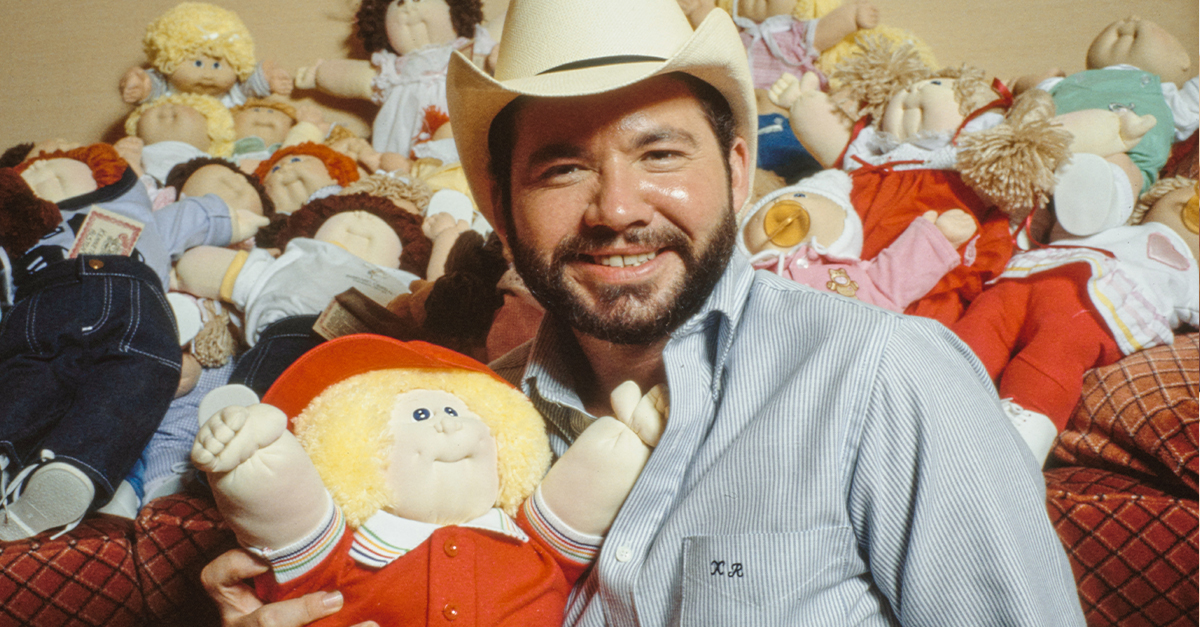"I Challenge You To A Duel"
Up until the end of the 19th century, duels were an actual thing that people challenged each other to—to solve disagreements, settle arguments, or just exact revenge for being done wrong. These are 30 that took place in America—many of which featuring some very famous names.
July 11, 1804: Aaron Burr/Alexander Hamilton Duel
We might as well start here, with the duel made famous by Lin-Manuel Miranda and his brilliant musical. Aaron Burr was the sitting Vice President when he shot former US Secretary of the Treasury Alexander Hamilton at dawn on July 11th, 1804. Hamilton passed on the next day.
He wasn't the first in his family to perish in a duel though...
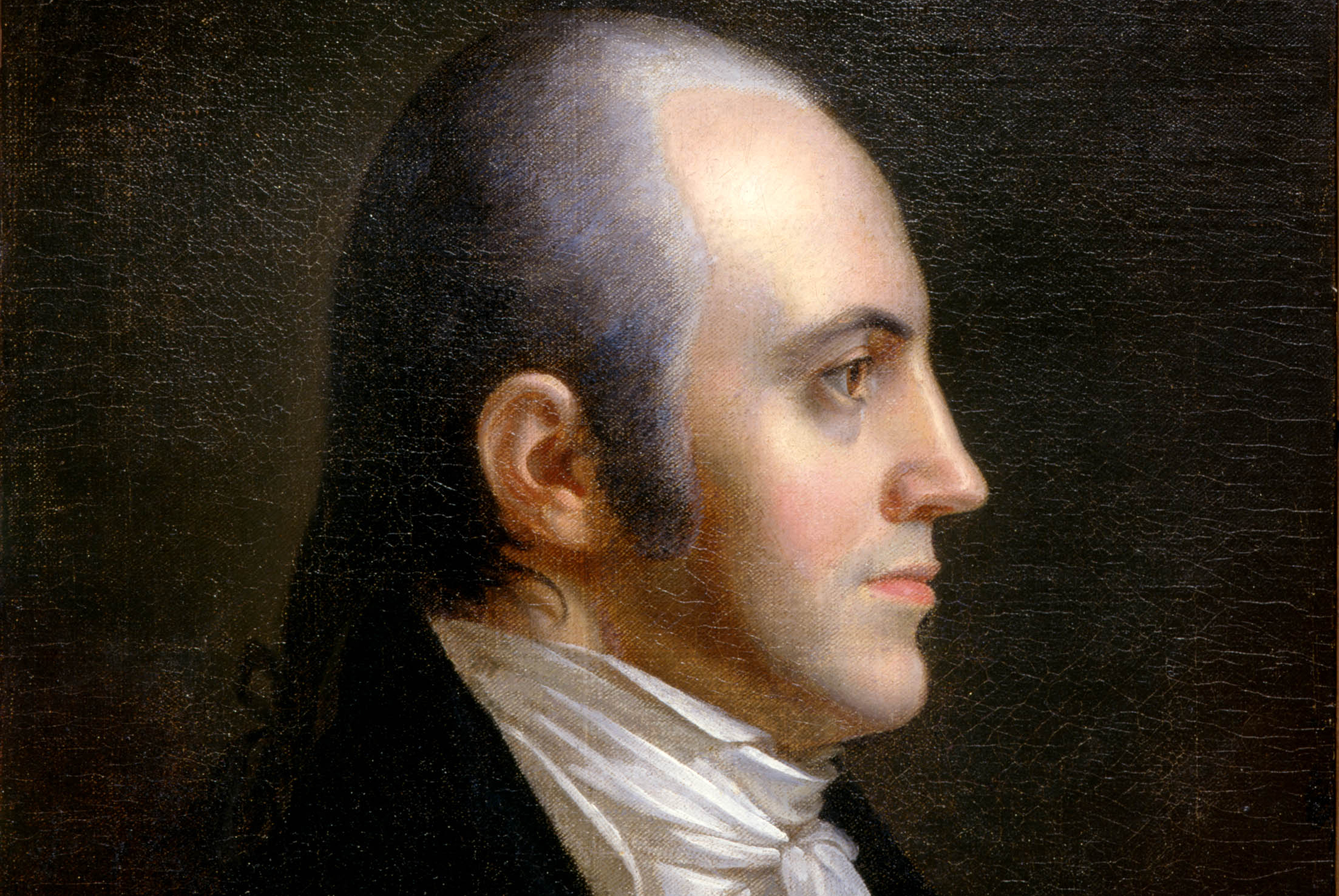 John Vanderlyn, Wikimedia Commons
John Vanderlyn, Wikimedia Commons
November 24, 1801: Philip Hamilton/George I Eacker Duel
Three years before his duel with Burr, Hamilton's son, Philip lost his life in a duel with George I Eacker.
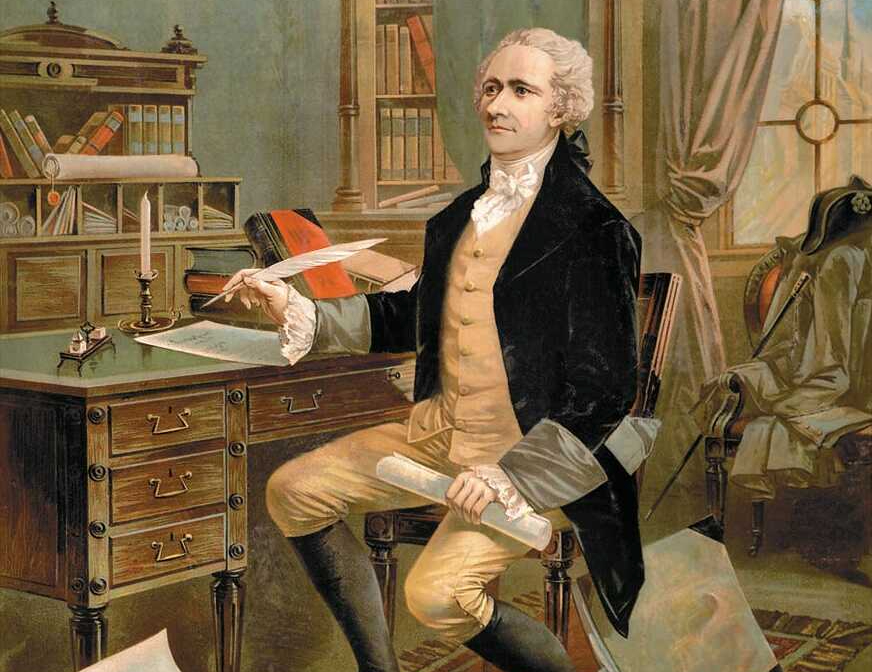 Hamilton Buggy Company, Wikimedia Commons
Hamilton Buggy Company, Wikimedia Commons
May 30, 1806: Andrew Jackson/Charles Dickinson Duel
Charles Dickinson was an American attorney and slave trader and the duel with Andrew Jackson began over some kind of disagreement about a horse. This duel took place prior to Andrew Jackson becoming president. However, Jackson killed Dickinson in the duel and thus—upon his election to the presidency in 1829—Jackson became the only US president to have slain a man in a duel.
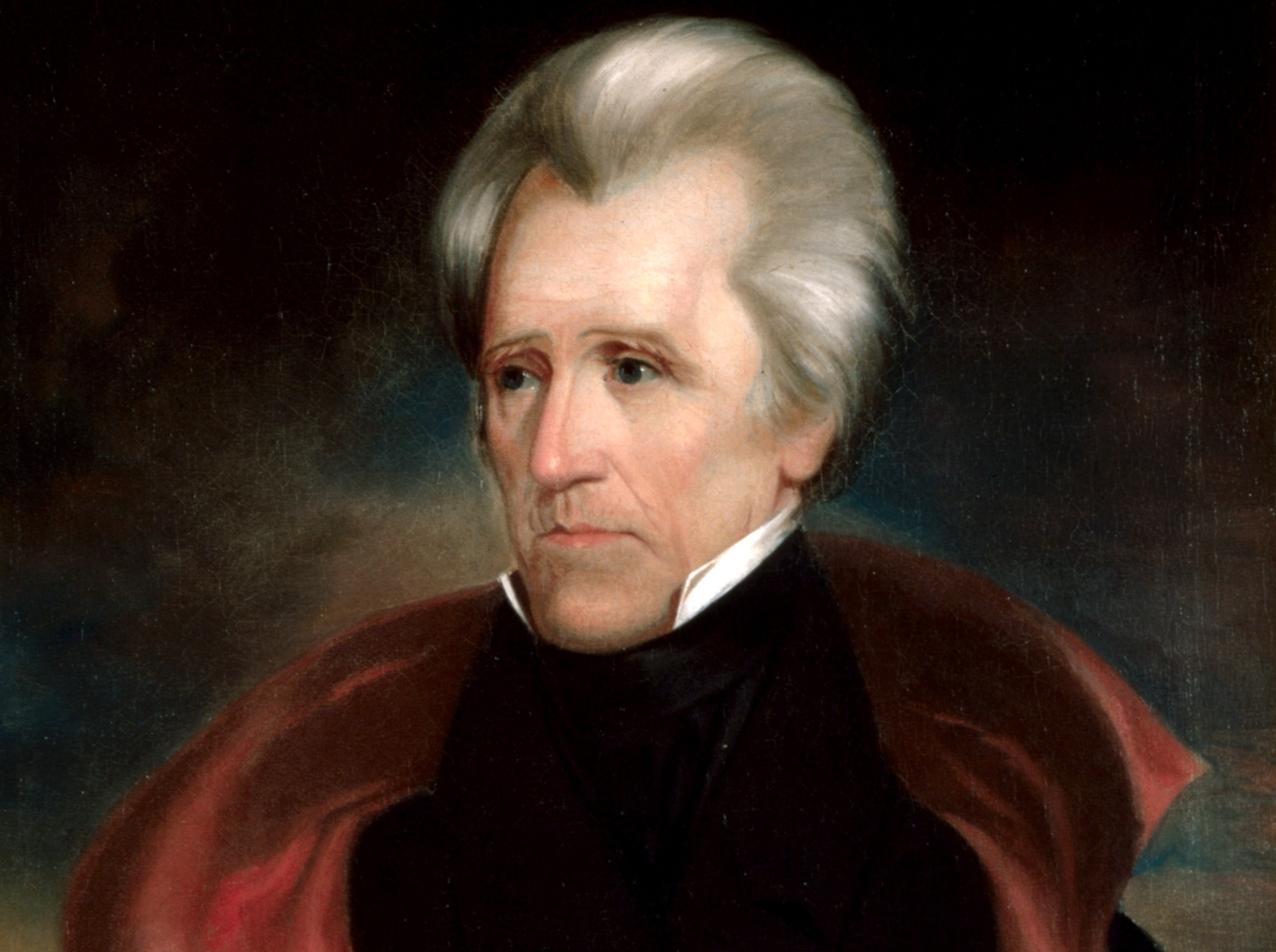 Ralph Eleaser, Wikimedia Commons
Ralph Eleaser, Wikimedia Commons
July 21, 1865: "Wild Bill" Hickok/Davis Tutt Duel
Hickok had lost a pocket watch to Tutt in a card game and wanted it back. Tutt refused and Hickok killed him. This Hickok/Tutt duel is often discussed as the first ever quick-draw duel between two gunmen.
 United Artists, Wild Bill (1995)
United Artists, Wild Bill (1995)
March 22, 1882: Wyatt Earp/Florentino "Indian Charlie" Cruz Duel
Historians debate how this actually went down—but according to Earp's own account, after he captured the outlaw Cruz, he told him to face him and draw his weapon. Earp shot him down.
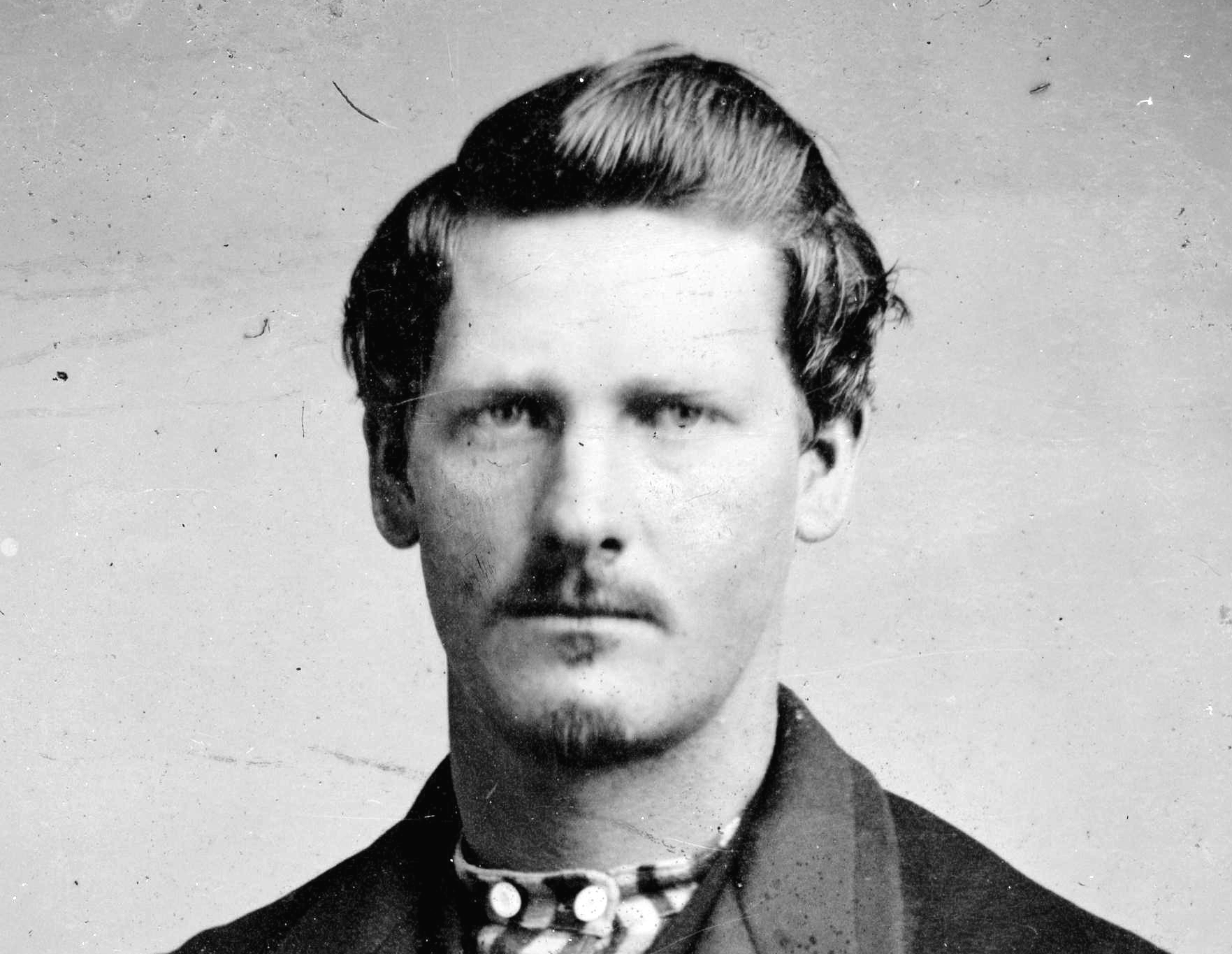 Unknown Author, Wikimedia Commons
Unknown Author, Wikimedia Commons
February 5, 1837: Albert Sidney Johnston/Felix Huston Duel
When Albert Sidney Johnston became Senior Brigadier General in command of the Texas Army, Texas Brigadier General Felix Huston was not happy about the promotion. Huston had been acting commander and felt he was the one that should've been given the permanent position. So, he challenged Johnston to a duel "as a public duty".
Although, years later he would call the duel, "a shameful piece of business, and I wouldn't do it again under any circumstances... Why, when I reflect upon the circumstances, I hate myself... that one act blackened all the good ones of my life. But I couldn't challenge Congress; and President Houston, although a duelist, was too far above me in rank. Well, thank God I didn't kill him".
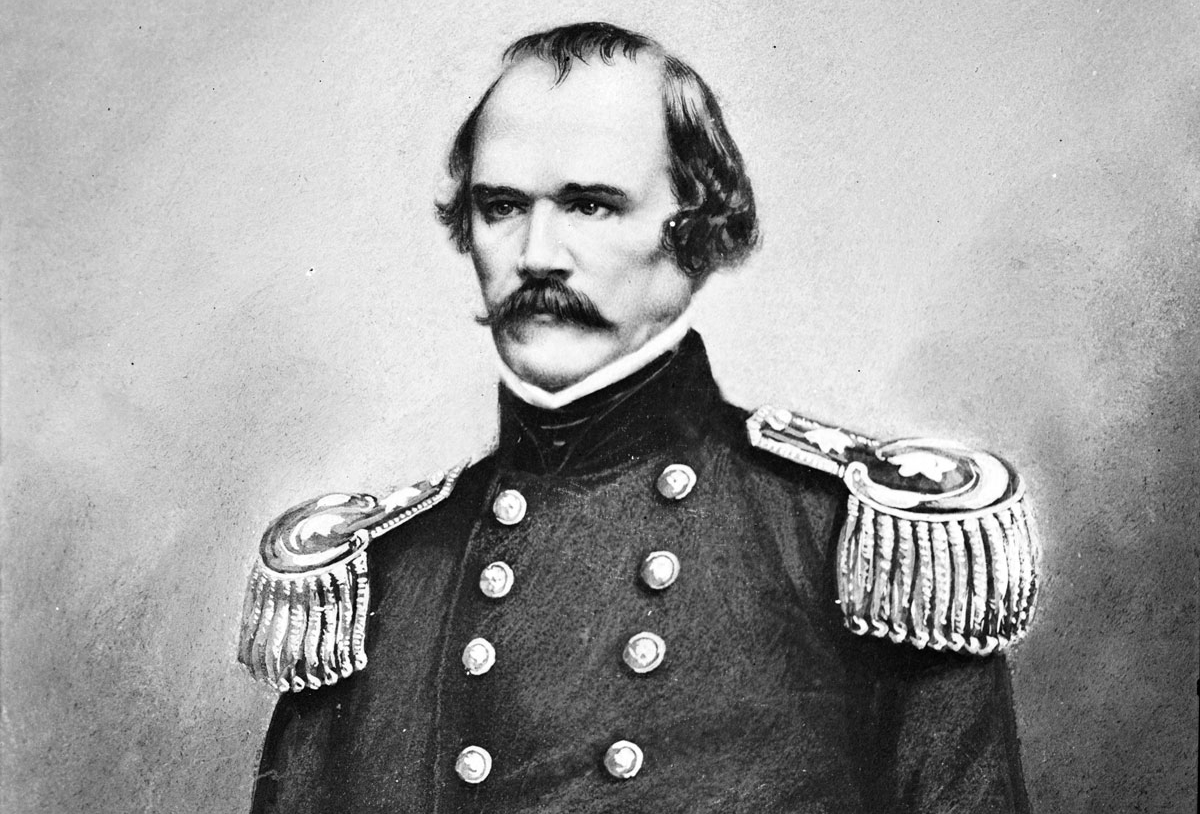 Unknown Author, Wikimedia Commons
Unknown Author, Wikimedia Commons
July 22, 1867: John Bull/Langford Peel Duel
This quick-draw duel took place in Salt Lake City, Utah when an argument over business led to Peel slapping Bull. Bull didn't have a gun, so Peel told him to go get one and come back. Bull took a while to return so Peel went to another saloon. There Bull showed up and outdrew Peel.
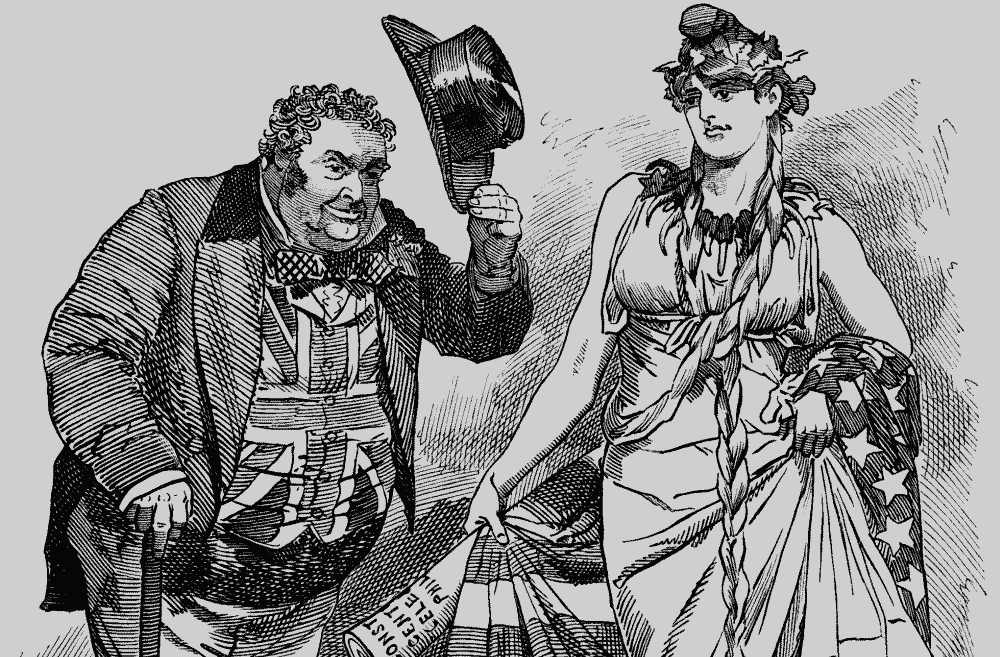 Unknown Author, Wikimedia Commons
Unknown Author, Wikimedia Commons
September 13, 1859: David C. Broderick/David S Terry Duel
US Senator David C Broderick and former Chief Justice of the Supreme Court of California David S Terry had, at one time, been good friends and allies in the Democratic party. However, resentment and political arguments arose as Broderick was an abolitionist, while Terry was pro-slavery.
Broderick was slain in the duel.
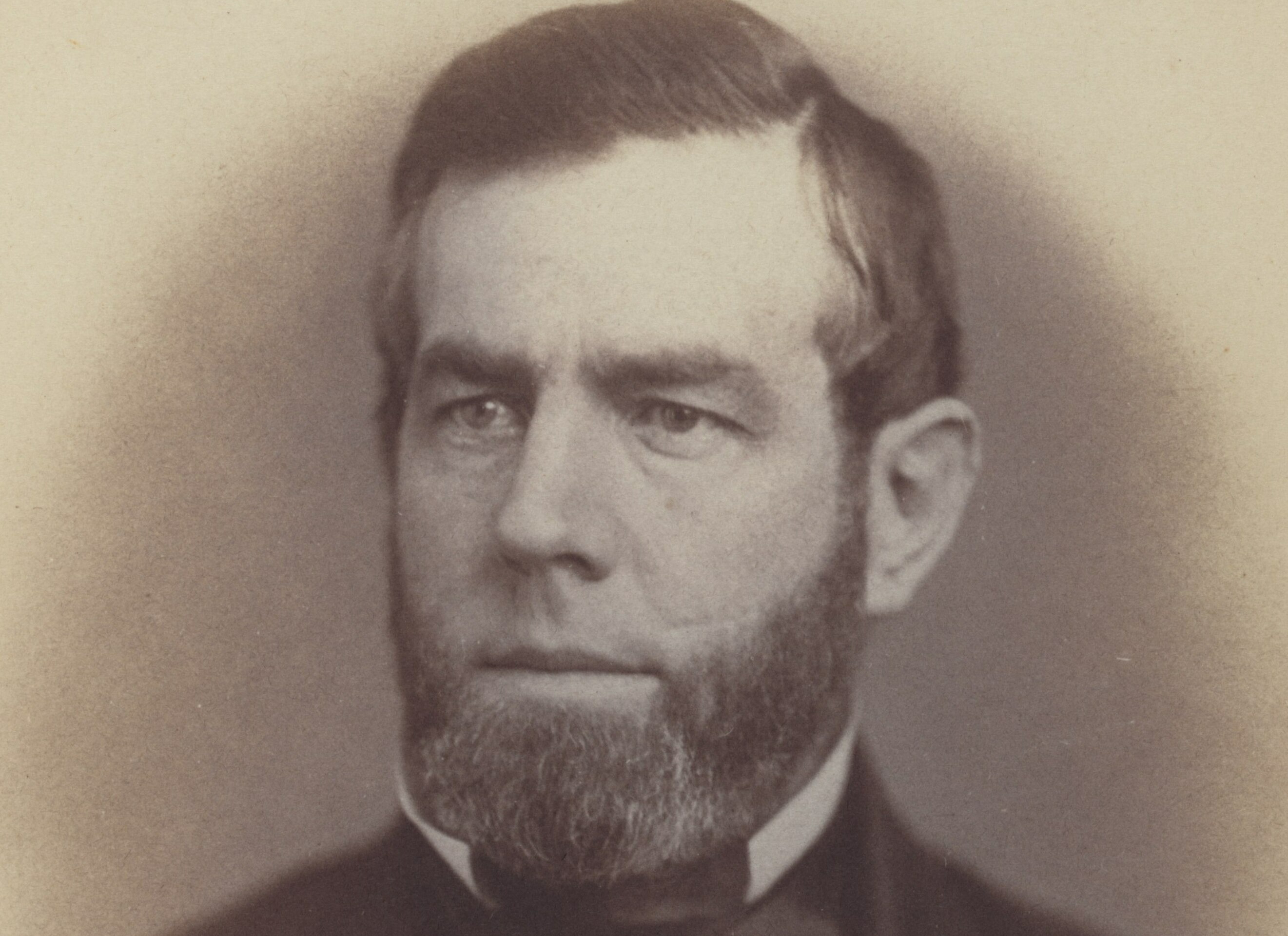 Julian Vannerson, Wikimedia Commons
Julian Vannerson, Wikimedia Commons
May 16, 1777: Button Gwinnett/Lachlan McIntosh Duel
Button Gwinnett was a founding father, whose name is on the Declaration of Independence. On May 16, 1777, he dueled his political rival, Lachlan McIntosh. Gwinnett lost—and perished three days later.
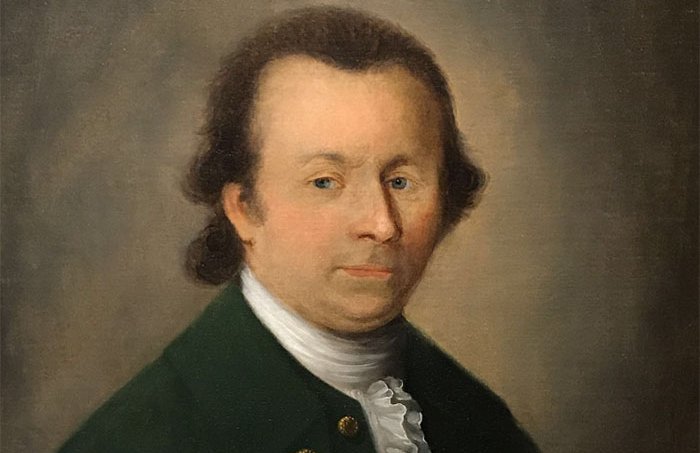 Jeremiah Theus, Wikimedia Commons
Jeremiah Theus, Wikimedia Commons
August 12, 1817: Thomas Hart Benton/Charles Lucas Duel
These two attorneys dueled twice in 1817. The first time, Lucas was shot in the throat and Benton was shot in the leg.
A month later...
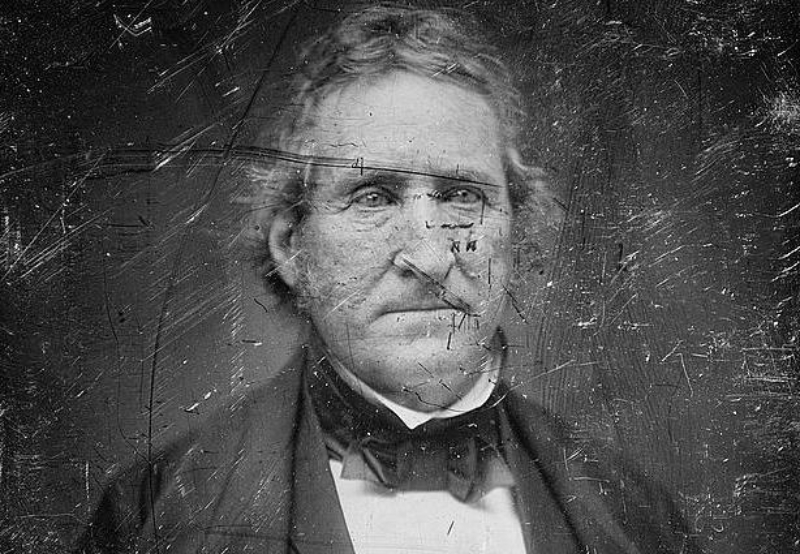 Mathew Benjamin Brady, Wikimedia Commons
Mathew Benjamin Brady, Wikimedia Commons
September 27, 1817 Thomas Hart Benton/Charles Lucas Duel II
Lucas argued that at 30 feet, the previous duel was unfair because Benton was a better shot. So, for this rematch they agreed to a distance of nine feet. This time Benton was unharmed and Lucas was slain.
March 22, 1820: Stephen Decatur/James Barron Duel
These two naval officers dueled in 1820. Decatur was killed.
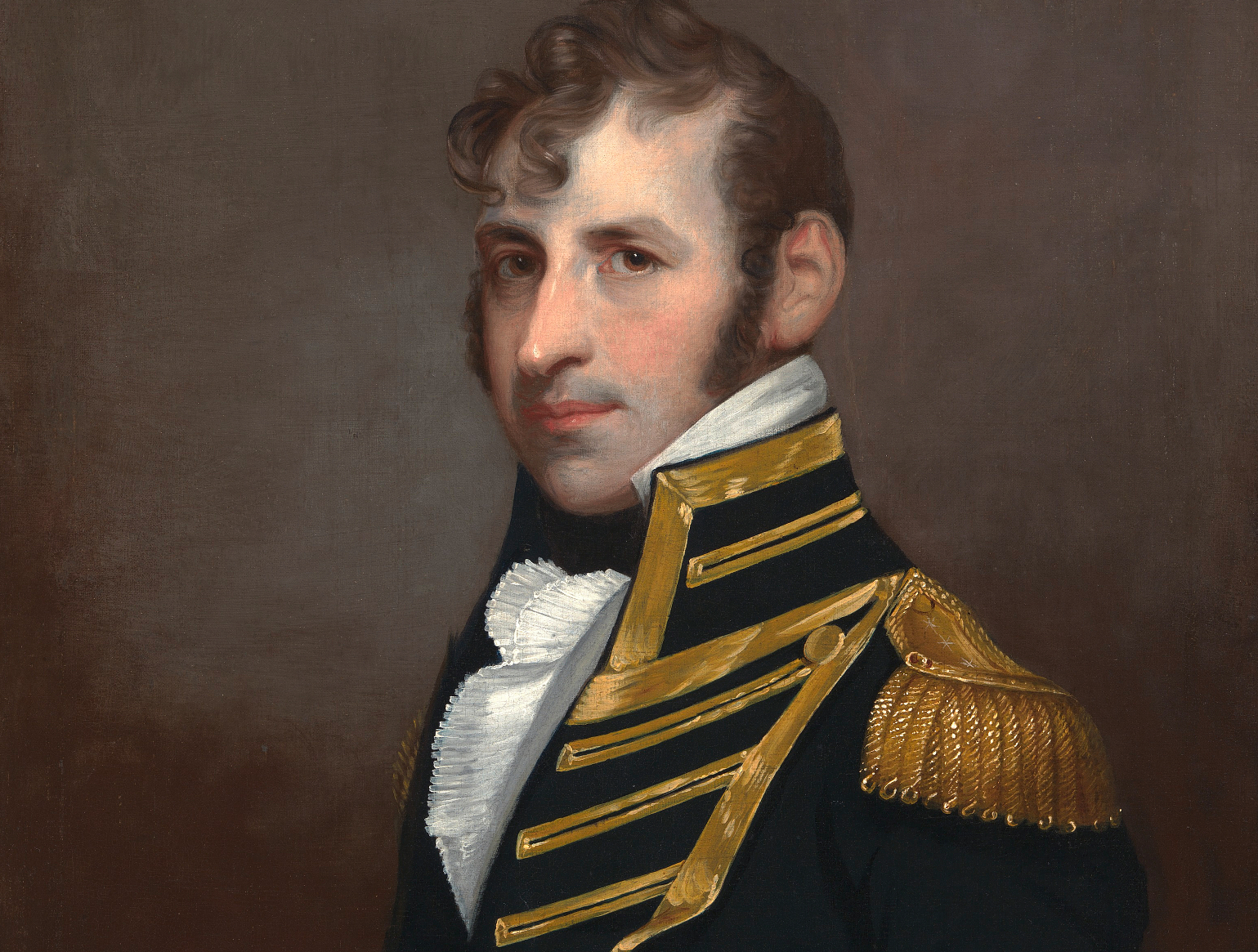 Charles Bird King, Wikimedia Commons
Charles Bird King, Wikimedia Commons
June 30, 1823: Joshua Barton/Thomas C Rector Duel
This duel came about because of both men's brothers. You see, Barton's brother, Senator David Barton, was trying to block the reappointment of Rector's brother, William Rector, as Surveyor General for Missouri, Illinois, and Arkansas.
Why David and William didn't duel, we don't know. What we do know is that Joshua Barton lost his life.
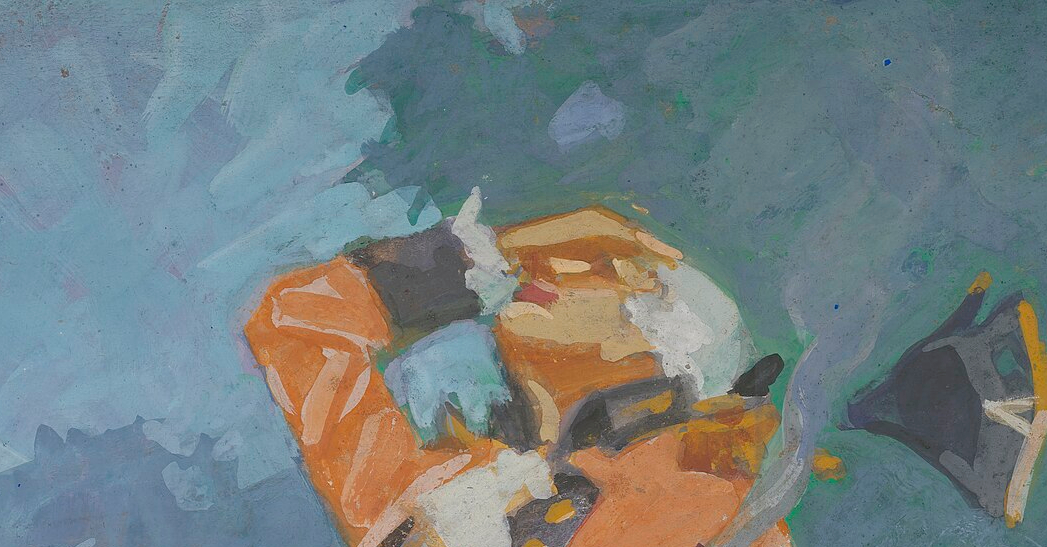 James C. Kulhanek, CC BY-SA 4.0, Wikimedia Commons
James C. Kulhanek, CC BY-SA 4.0, Wikimedia Commons
January 19, 1809: Henry Clay/Humphrey Marshall Duel
Henry Clay was a lawyer and Kentucky representative in congress. He also seems to have loved to duel. In 1809, he dueled fellow state house member Humphrey Marshall. Both men had three shots, both were hit, and both survived.
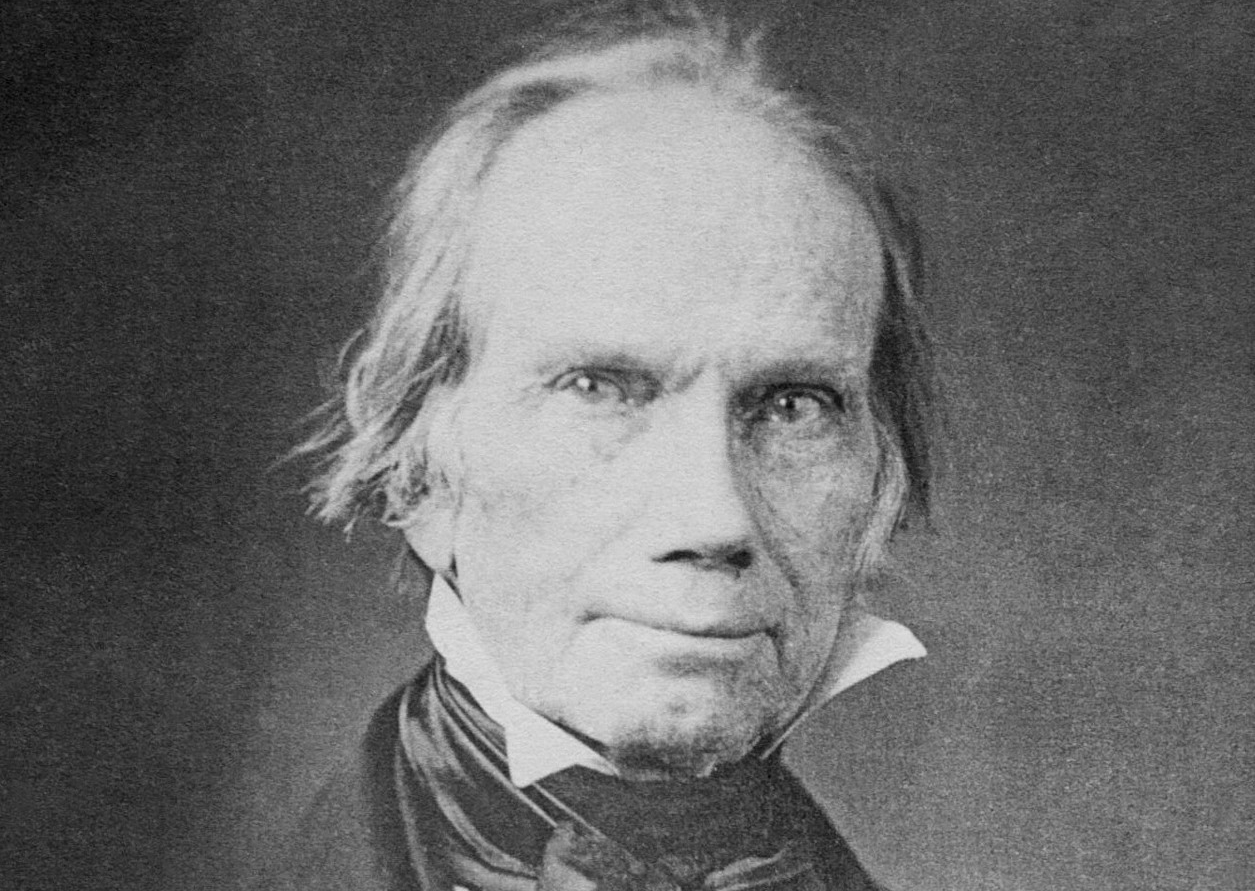 Julian Vannerson or Montgomery P. Simons, Wikimedia Commons
Julian Vannerson or Montgomery P. Simons, Wikimedia Commons
April 26, 1826: Henry Clay/John Randolph of Roanoke Duel
17 years later, Clay was back on the duel train—this time taking on John Randolph of Roanoke. Neither man was harmed in this duel.
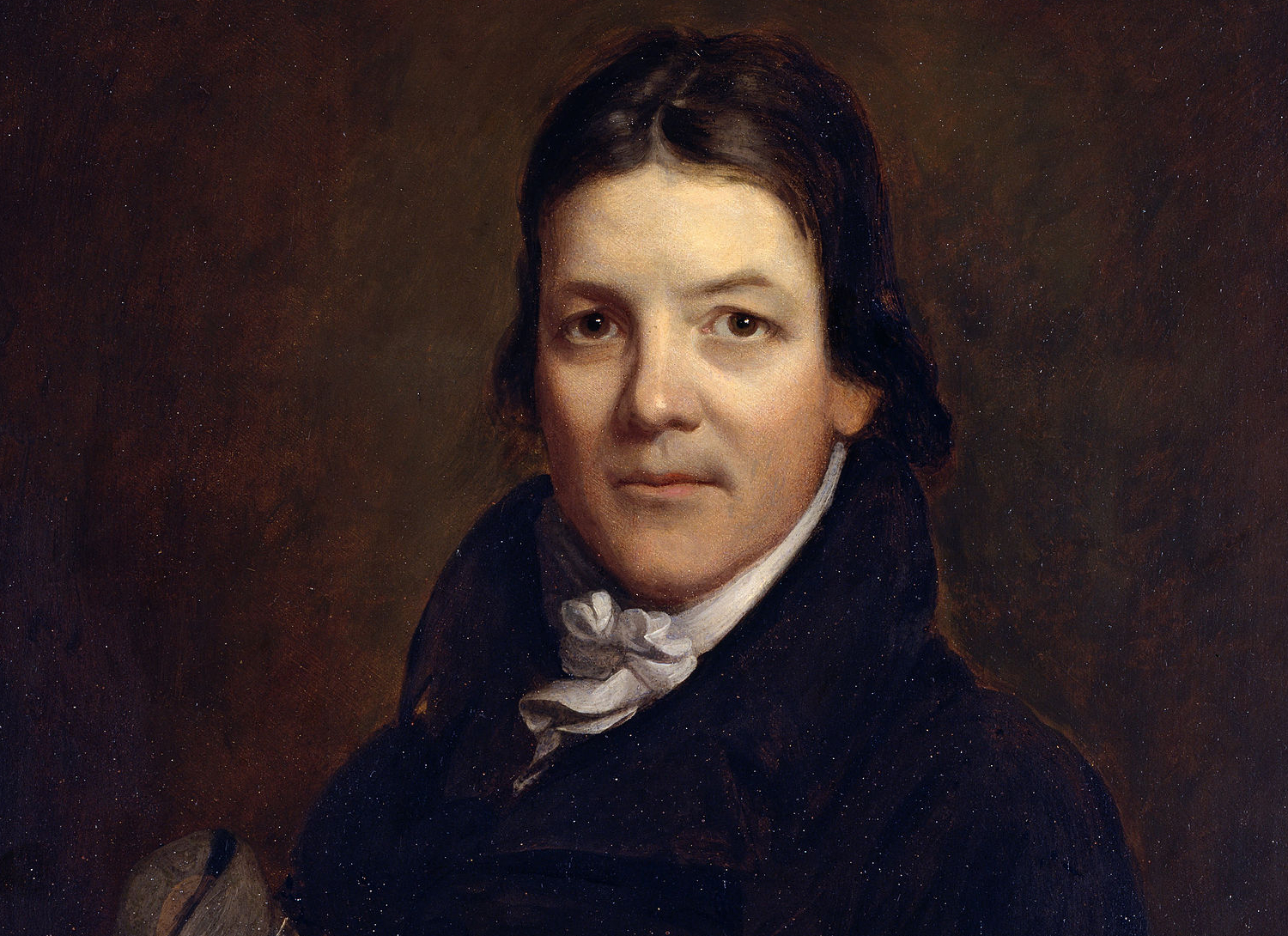 John Wesley Jarvis, Wikimedia Commons
John Wesley Jarvis, Wikimedia Commons
September 22, 1826: Sam Houston/General William A White Duel
Who knew the patronage political appointment of the Nashville Postmaster could be so contentious? Well, in 1826 it sure was—as it was the catalyst that led to the Sam Houston and General William A White duel. White was severely wounded.
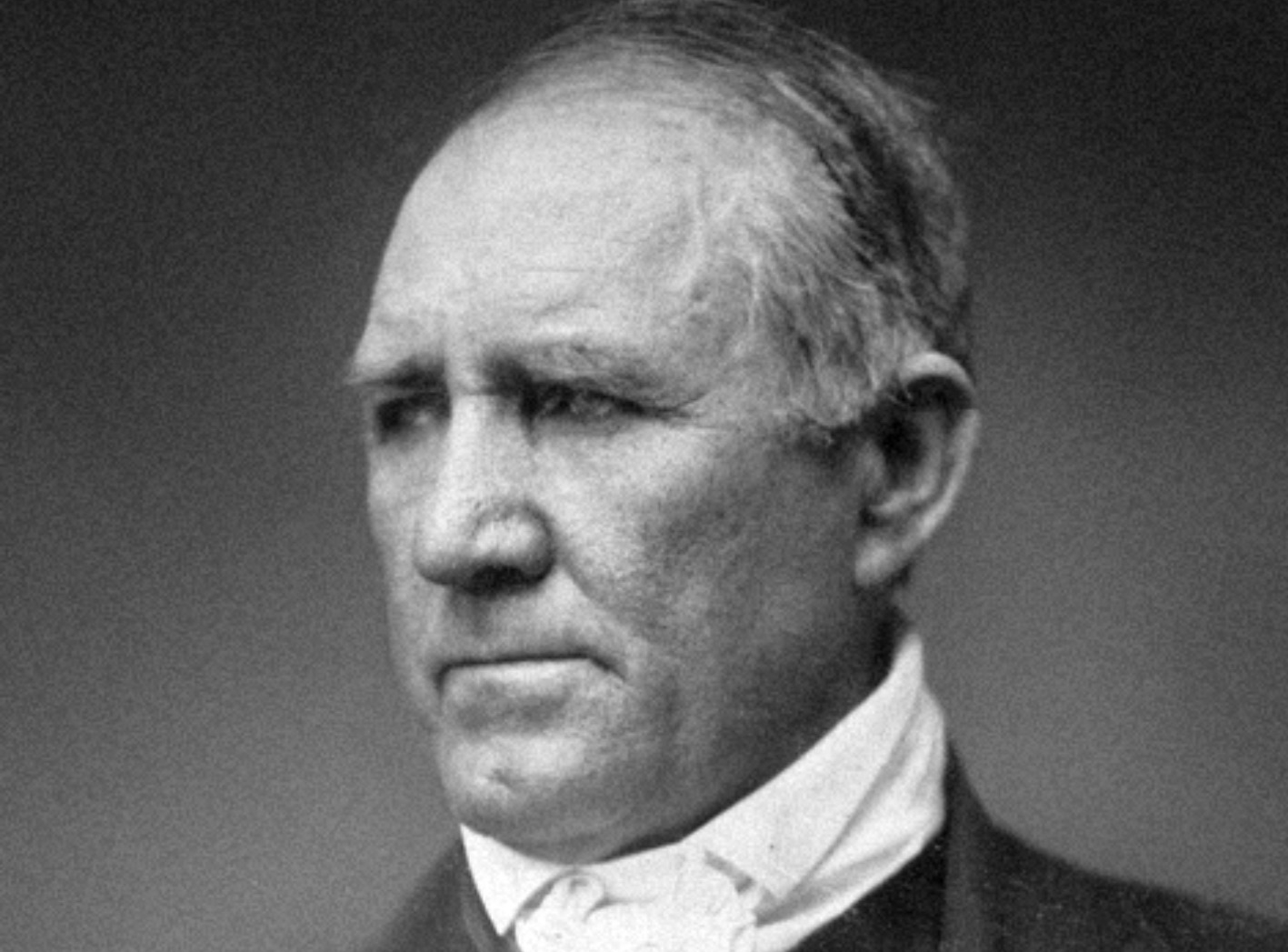 Mathew Brady, Wikimedia Commons
Mathew Brady, Wikimedia Commons
September 19, 1827: Samuel Levi Wells III/Dr Thomas Harris Maddox Duel
What began as a duel devolved into a full on brawl with multiple combatants, and came to be known as the Sandbar Fight.
January 25, 1828: George W Crawford/Thomas E Burnside Duel
Attorney general for the state of Georgia, Crawford challenged Georgia state legislator Burnside to a duel after Burnside's uncle (Ambrose Burnside) wrote unkind defaming things about Crawford's father. Burnside was slain in the duel.
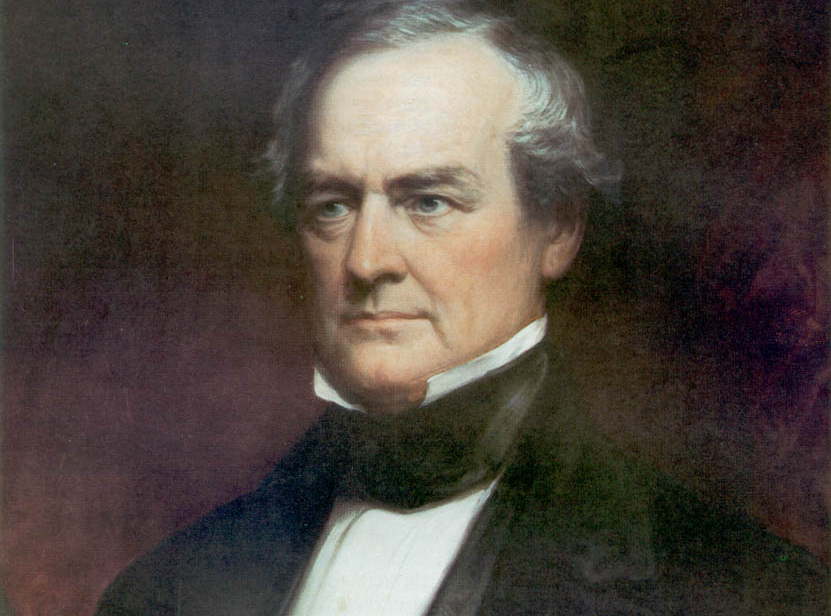 Daniel Huntington, Wikimedia Commons
Daniel Huntington, Wikimedia Commons
August 26, 1831: Thomas Biddle/Spencer Darwin Pettis Duel
Following comments Pettis made about Biddle's brother, he challenged Biddle to a duel. The duel distance was five feet and both men were mortally wounded.
August 10, 1832: Philip Minis/James Stark Duel
After he fatally shot State Legislator Stark, Georgia doctor Philip Minis claimed that the shooting had taken place as a valid duel. He also claimed he hadn't agreed to the duel and thus the shooting was also in self-defense. A jury agreed.
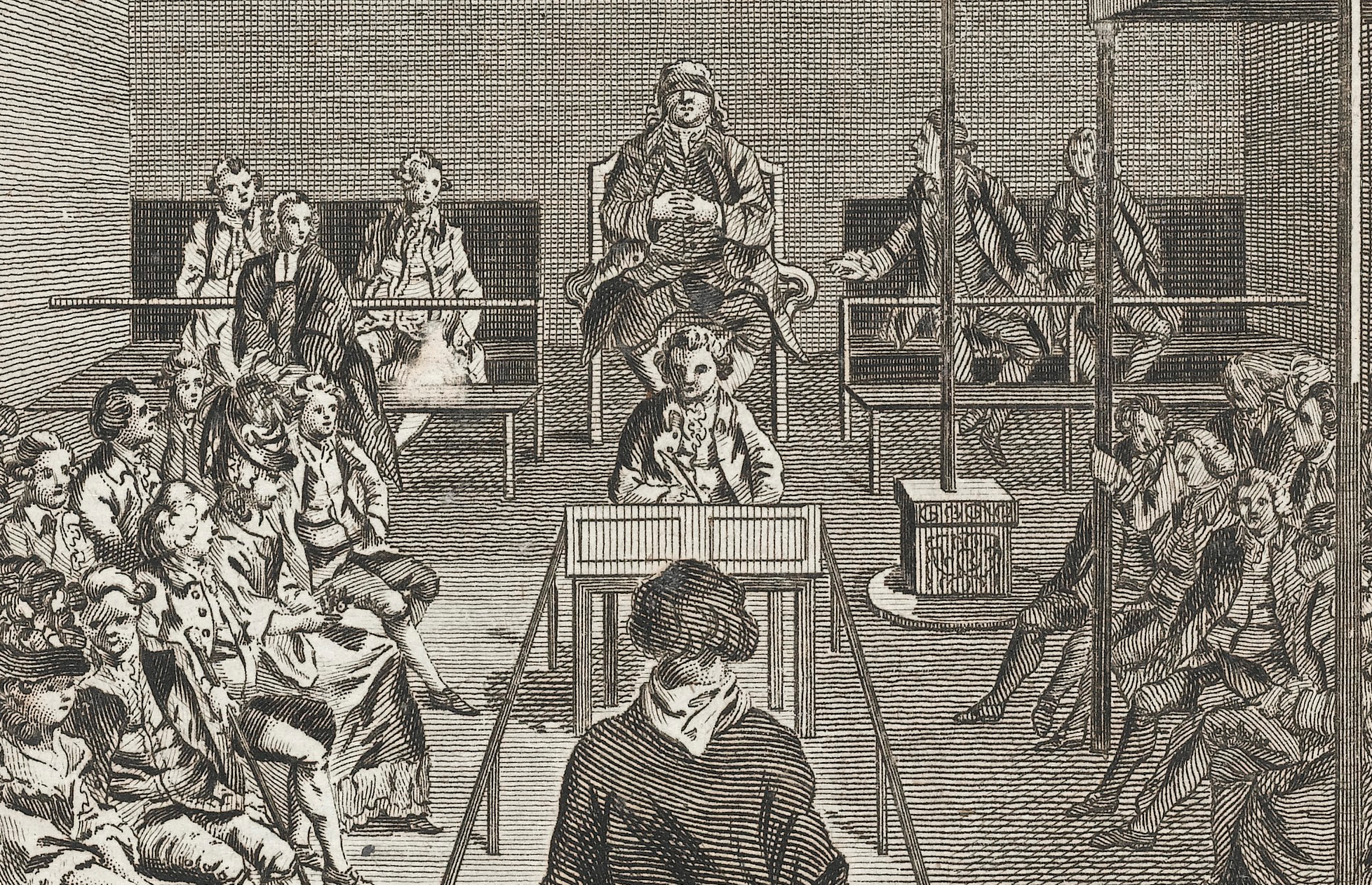 Unknown Author, CC BY 4.0, Wikimedia Commons
Unknown Author, CC BY 4.0, Wikimedia Commons
September 25, 1832: James Westcott/Thomas Baltzell Duel
Baltzell was unharmed in the duel. Westcott was injured—but he survived and went on to become a US Senator.
February 24, 1838: William Jordan Graves/Jonathan Cilley Duel
Following the killing of US Representative from Maine Jonathan Cilley by US Representative from Kentucky William Jordan Graves, a law was passed by Congress making it illegal to both issue and accept a duel challenge in Washington, DC.
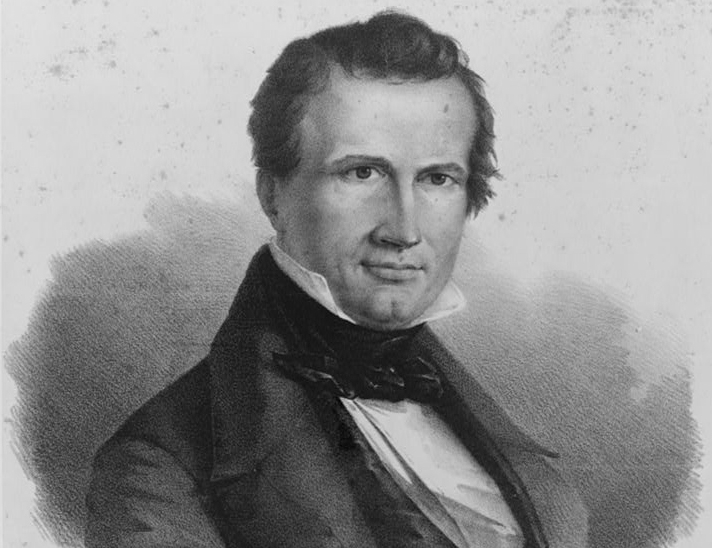 Philip Haas, Wikimedia Commons
Philip Haas, Wikimedia Commons
December 12, 1839: Leigh Read/Augustus A Alston Duel
Leigh Read was a Florida Militia Brigadier General—and Augustus A Alston was a Colonel and leader in the Whig party. The duel took place with rifles at 15 paces. Alston had challenged Read two times previously and was very confident in his marksmanship. However, in a surprise result, Read killed Alson in the duel.
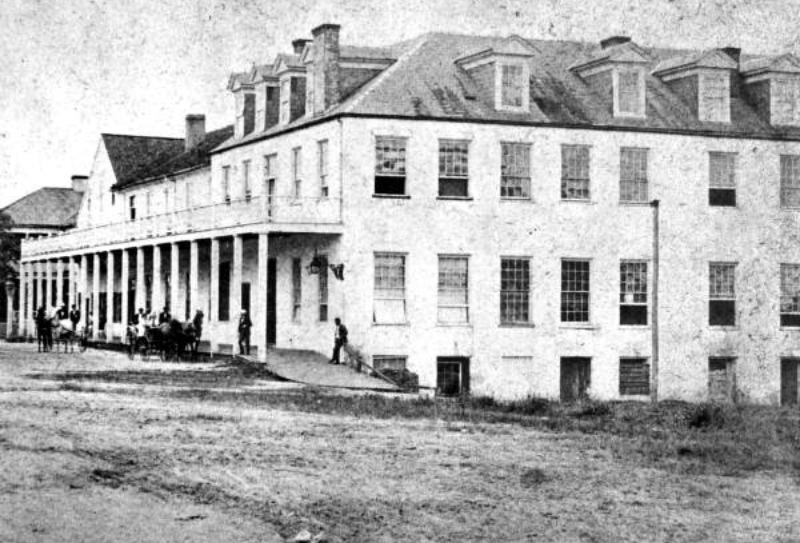 The City Hotel, Wikimedia Commons
The City Hotel, Wikimedia Commons
August 26, 1856: Benjamin Gratz Brown/Thomas C Reynolds Duel
It would become known as the "Duel of the Governors". Brown was an abolitionist and the editor of the St Louis Democrat, while Reynolds was a pro-slavery district attorney in St Louis. Reynolds was unhurt in the duel, while Brown was shot in the leg and would walk with a limp for the rest of his life.
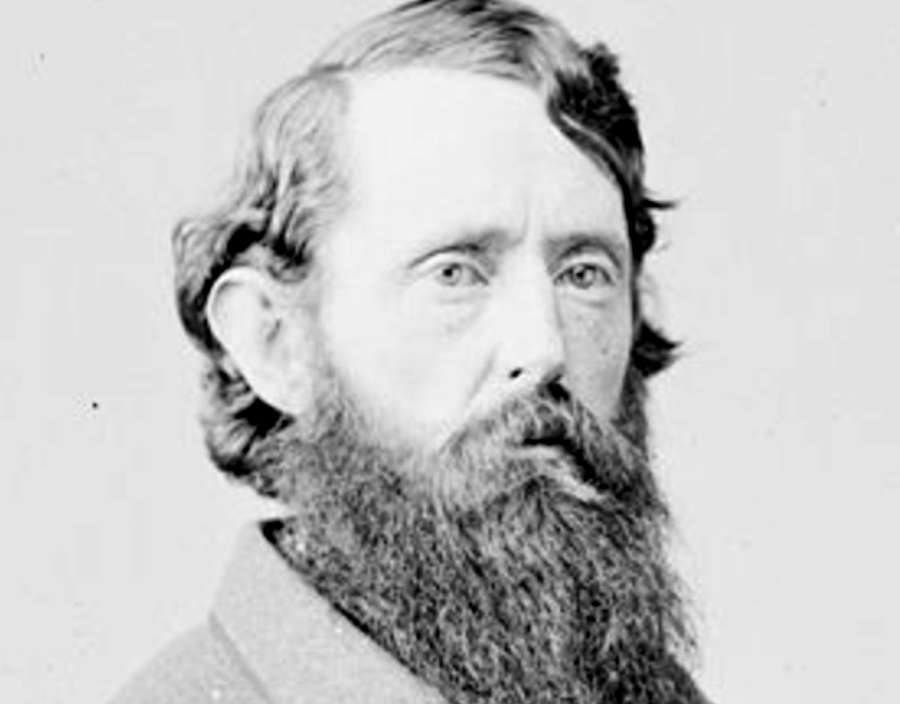 Mathew Brady, Wikimedia Commons
Mathew Brady, Wikimedia Commons
September 6, 1863: Lucius Marshall Walker/John Sappington Marmaduke Duel
Brigadier General Walker was the nephew of President James K Polk. He and General Marmaduke disagreed over differences on the battlefield—which led to this duel that saw both men miss with their first shots. However, with his second shot, Marmaduke wounded Walker—and he passed on the following day.
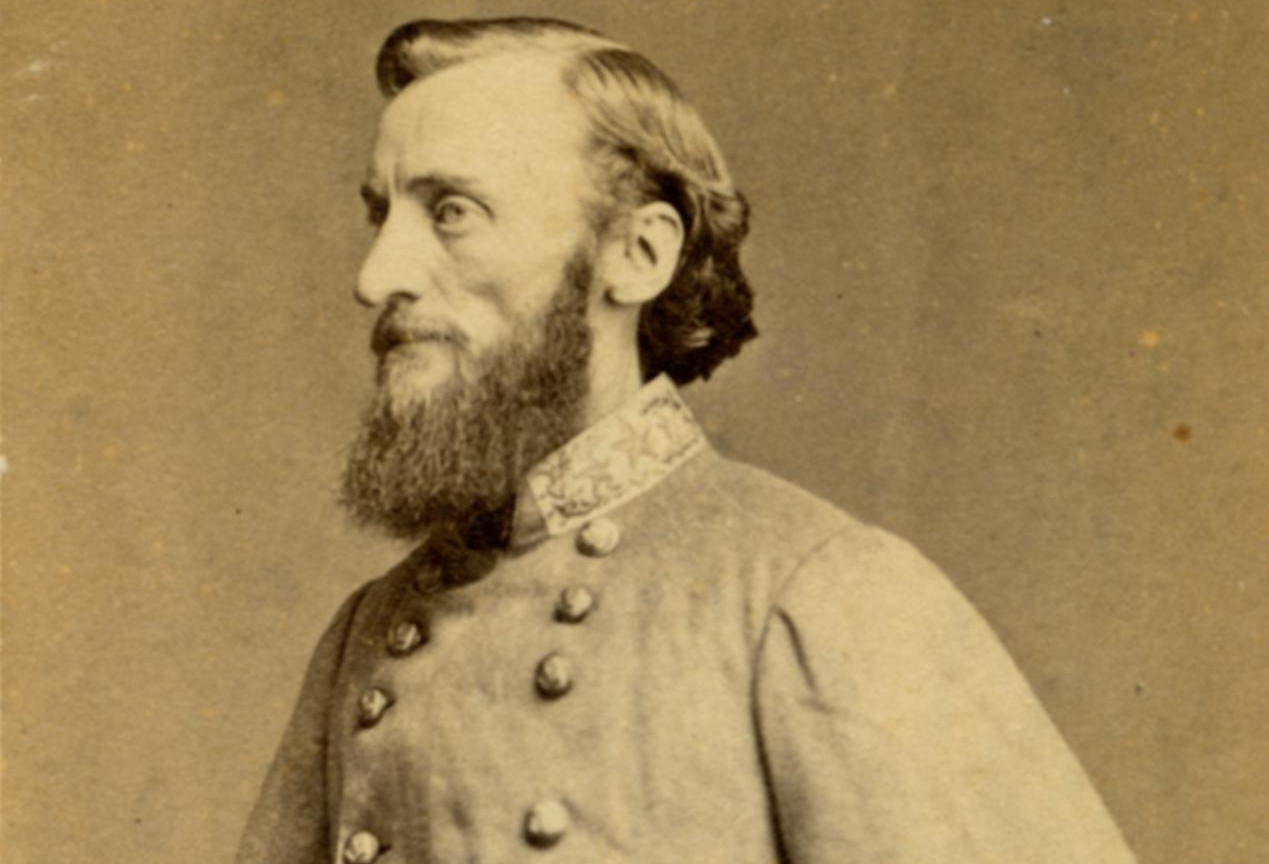 Mississippi Department of Archives and History, Wikimedia Commons
Mississippi Department of Archives and History, Wikimedia Commons
December 24, 1778: John Laurens/Charles Lee Duel
These two Continental Army officers dueled on Christmas eve, 1778. Lee was wounded in the duel, while Laurens walked away unharmed.
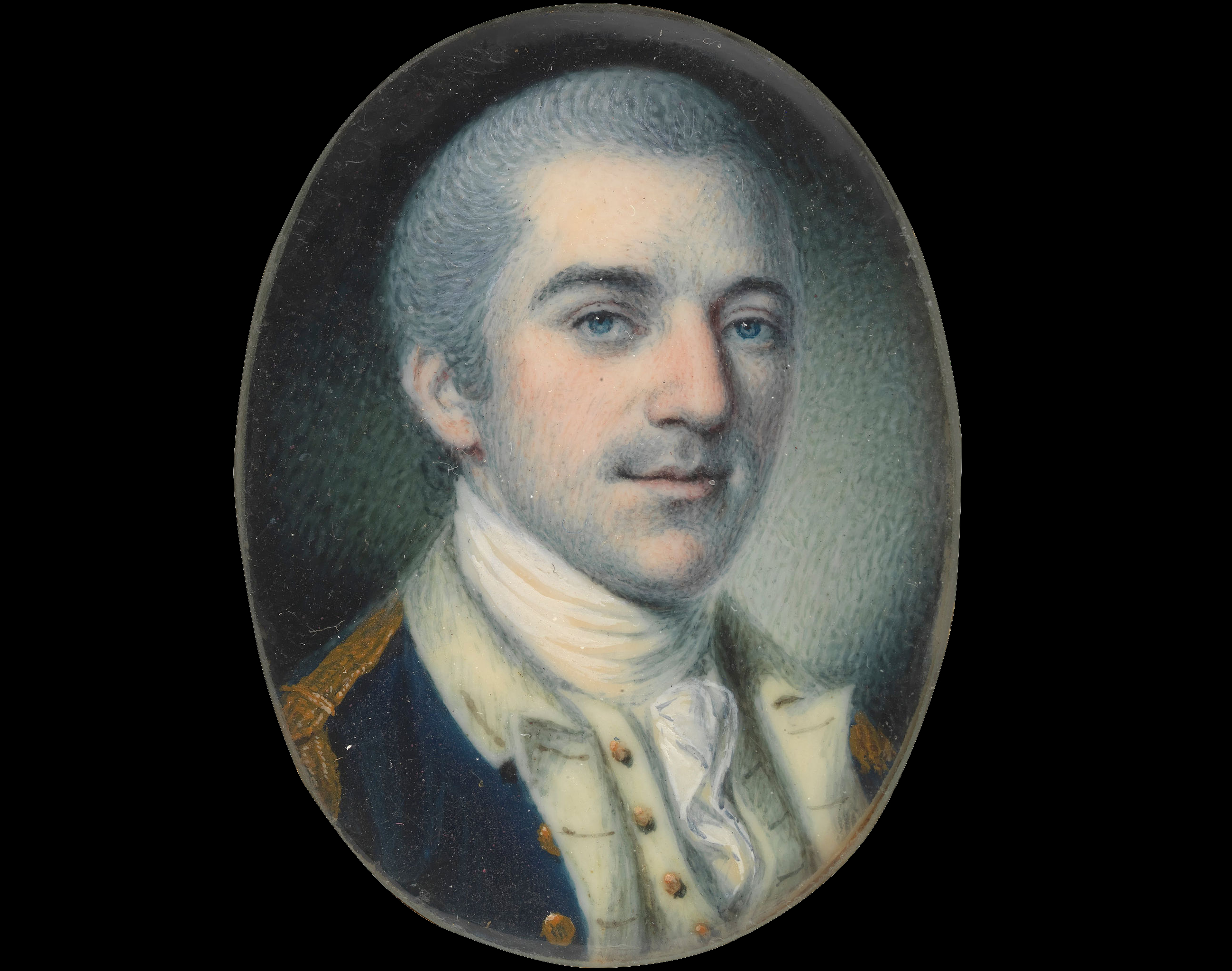 Charles Willson Peale, Wikimedia Commons
Charles Willson Peale, Wikimedia Commons
March 9, 1877: Jim Levy/Charlie Harrison Duel
Famed Western novelist James Reasoner called the duel between these two gamblers, "the most 'Hollywood' showdown". While Harrison shot wildly and missed, Levy remained calm and focused and shot Harrison.
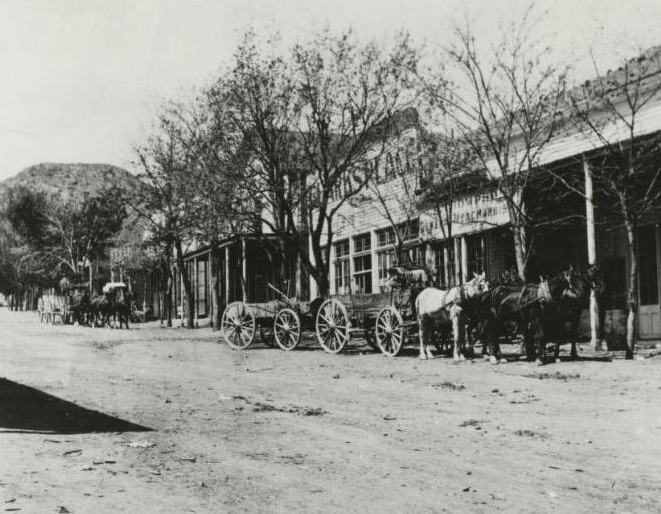 Unknown Author, Wikimedia Commons
Unknown Author, Wikimedia Commons
June 7, 1882: Edward A. Burke/C Harrison Parker
Parker—the editor of the New Orleans Daily Picayune, had published some not-so-nice comments about Burke. So, Burke challenged him to a duel. Burke was seriously wounded.
February 8, 1887: Jim Courtright/Luke Short Duel
This is how Short described how it went down: "Early in the evening ... I was at the bar with a couple of friends when someone called me. I went out into the vestibule and saw Jim Courtright and Jake Johnson ... I walked out with them upon the sidewalk, and we had some quiet talk on private affairs. I reminded him of some past transactions, not in an abusive or reproachful manner, to which he assented, but not in a very cordial way. I was standing with my thumbs in the armholes of my vest and had dropped them in front of me to adjust my clothing, when he remarked, 'Well, you needn't reach for your gun,' and immediately put his hand in his hip pocket and pulled his. When I saw him do that, I pulled my pistol and began shooting, for I knew that his action meant death. He must have misconstrued my intention in dropping my hands before me. I was merely adjusting my clothing, and never carry a pistol in that part of my dress".
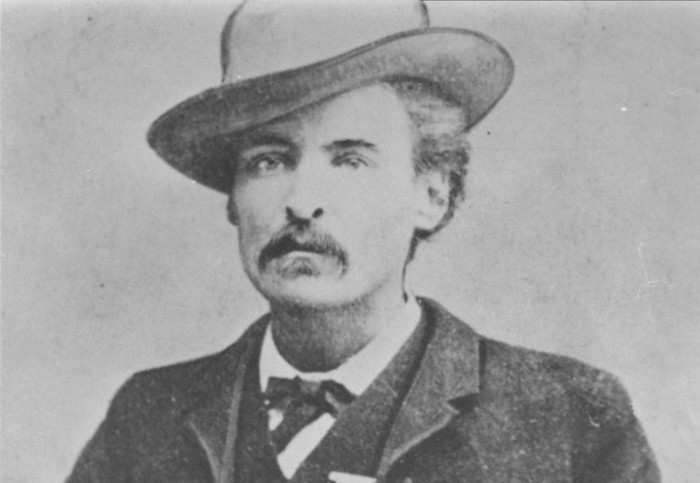 Unknown author, Wikimedia Commons
Unknown author, Wikimedia Commons
September 22, 1842: Abraham Lincoln/James Shields Duel
Yes, we're talking about that Abraham Lincoln here. He was an Illinois state legislator at the time when he accepted the duel from Illinois state auditor James Shields (Shields was angry because of some letter in a Springfield newspaper that made fun of him—that supposedly Lincoln had published).
The two men came together and were just about to duel when their right-hand men were able to convince them to stop (on the grounds that Lincoln hadn't written the letters).

